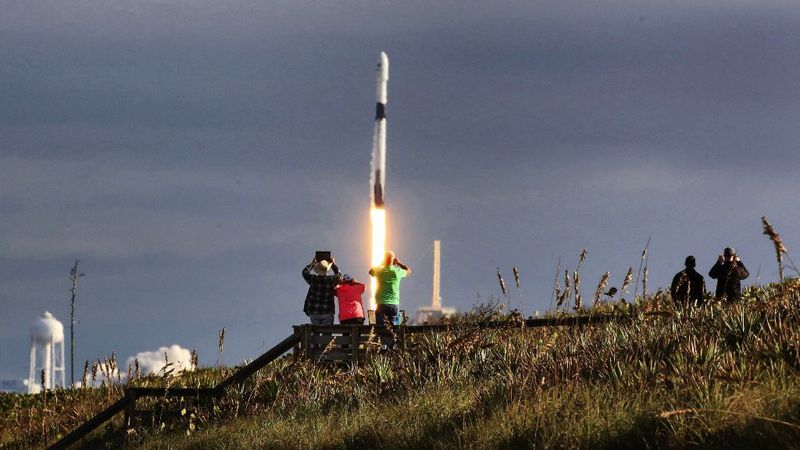
How Orlando became a launchpad for data-driven innovation
On Tuesday, SpaceX Falcon 9 is scheduled to lift off from Cape Canaveral. As the 1.2-million-pound rocket launches into outer space, it’ll carry with it 17 state-of-the-art communications satellites to provide rural communities across the globe with access to broadband technology — connecting individuals through the power of technology like never before. SpaceX is just one example, but companies like Boeing, Amazon, Lockheed Martin, and others are leading the way to keep America on the cutting edge of space commercialization.
The innovative nature of these companies is the backbone of our data-driven economy and demonstrate how Florida, in particular Orlando, is leading the way to develop new and advanced technologies that are changing the way we live and work.
As a key part of Florida’s Space Coast and just an hour away from the Kennedy Space Center, Orlando is at the epicenter of the burgeoning commercial space industry, which is estimated to grow to more than $1 trillion by 2040. Innovative companies like Boeing and Blue Origin are transforming the commercial space industry by reducing launch costs, making it easier for the world to connect, and enabling millions of people to participate in the internet economy.
Commercial space is not the only sector where Florida is driving change. The state is also a national leader in promoting the safe deployment of autonomous vehicles. Since 2012, Florida has allowed the testing of autonomous vehicles on public roads and expanded the law in 2016 to legalize the operation of autonomous vehicles without a human driver.
The introduction of autonomous vehicles will bring immense benefits to society, particularly in terms of increased safety and mobility. Tragically, 31,377 roadway deaths occur annually in the United States with nearly 10% of those deaths in Florida alone. Ninety-four percent of fatal roadway accidents are caused by human error. But, unlike people, autonomous vehicles rely on a suite of sensors and other detection technologies that won’t fall asleep behind the wheel or drive under the influence. Ultimately, this means that autonomous vehicles have the potential to save thousands of lives every year.
In addition, autonomous vehicles will increase mobility options for a variety of groups including the blind, disabled, and the elderly. This is not just a future goal — it’s already a reality. Look no further than the suburbs of Orlando, where Voyage, an autonomous taxi service, launched a free, on-demand autonomous taxi service last February to provide residents, predominately senior citizens, with greater freedom and independence. According to the AARP, 8 million people age 65 and older do not drive, so scaled across the country, autonomous vehicle adoption will have a significant positive impact on the lives of seniors. Voyage’s service is a model for others to follow.
In both the commercial space industry and autonomous vehicle arena, future success will be dependent on ensuring that public policy can accommodate the rapid innovations that are occurring and do not erect artificial barriers that could hinder the potential benefit these industries provide.
Florida serves as an example of how to safely harness these technological advancements. We are proud to continue the conversation here in Orlando on the critical role technology plays in our society and the benefits it brings to millions across the globe.
The Weekly Download
Subscribe to receive a weekly roundup of the Chamber Technology Engagement Center (C_TEC) and relevant U.S. Chamber advocacy and events.
The Weekly Download will keep you updated on emerging tech issues including privacy, telecommunications, artificial intelligence, transportation, and government digital transformation.
